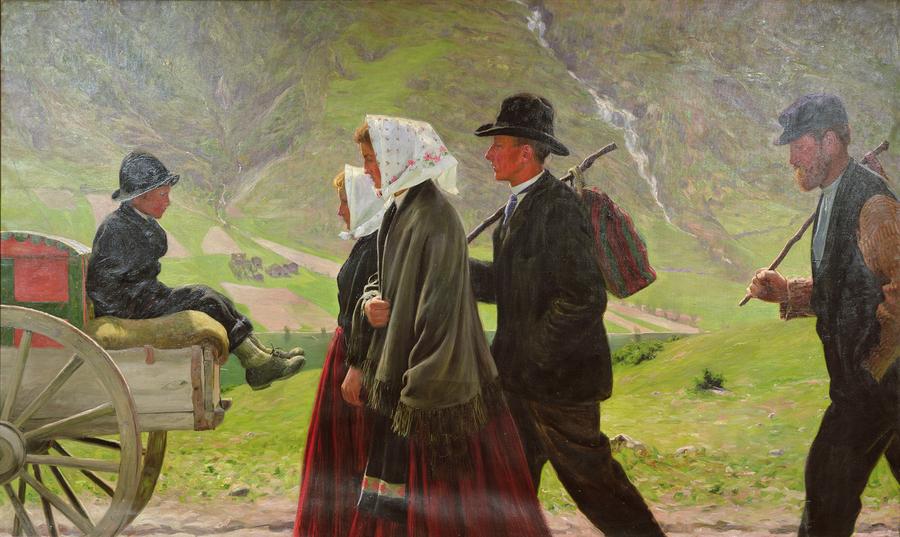
I recently traveled to Minnesota to attend a good friend’s wedding. It was great to catch up with him and visit with others. I got to tour the wonderful Minneapolis Institute of Art with Catholic artist Timothy Jones, and also for the first time met with a cousin I hadn’t met before.
My cousin is interested in genealogy, stemming from the fact that his father and aunt—twins—had been abandoned by a woman in the 1920s and had both been haunted by not knowing why. After a great deal of detective work, he discovered that the twins were half-siblings to my grandfather. From there he tracked down my father and made contact. My great-grandmother had had a number of illegitimate children who were brought up by relatives or given up for adoption. Going further back finds more family trauma, mental illness, and poverty among the branch of Herreids I’m related to who emigrated to the United States from Norway in the late 1800s to escape famine.
It brought to mind two persistent and harmful ideas that keep cropping up, especially as tropes in fiction. One—very central to the American ideal—is the idea that we can reinvent and remake ourselves into anyone you want to be. In this line of thought, anyone can be anything. Only a lack of imagination and laziness can keep you back. The other idea is the one that we are tragic prisoners of the past; that we are forever doomed by whatever hardships or trauma that is in our background.
The reality is a little tougher. Discovering more about the past and learning from it can help deal with the future. No one person is free from the past, no matter how much they may try.
It also reminded me of some novels that have dealt with the idea of past trauma. In James Casper’s book, Everywhere in Chains, avoidance of confronting mental illness and family history leads to a girl discovering that healing begins only when these matters are honestly faced. In Fiorella De Maria’s We’ll Never Tell Them, a women finds courage to face the future through the stories of family recounted by an elderly man. And in T.M. Doran’s Terrapin, a murder forces a look into the past dredging up misdeeds that have repercussions that resonate through the decades.
Just as we have certain talents and traits, we also have advantages and disadvantages that come along with our history. And just as we are far better off once we discover what our talents and traits are, taking honest stock of our personal history can help us be better people. For just one example, it’s been a few years since I sought help for depression (encouraged in part by reading the excellent Catholic Guide to Depression). Finding that there is a history of this in my family that extends back to our Norwegian ancestors has helped me place it in that context: depression didn’t just come out of nowhere to me, and I am equipped to also help my kids if it passes along to any of them.
We cannot remake ourselves. But in finding out what we are made of, we can help shape our lives for the better.
Image: Emigrants by Gustav Wentzel, 1900.






Leave a Reply